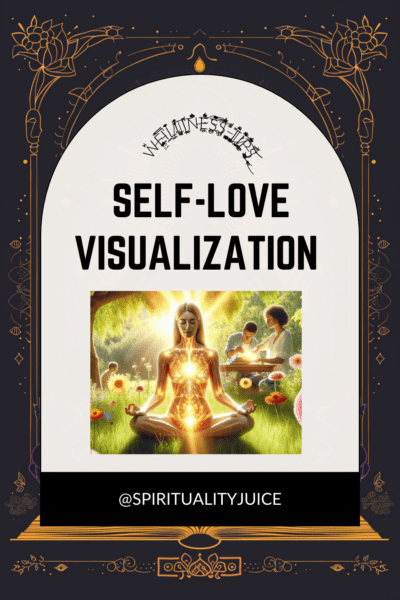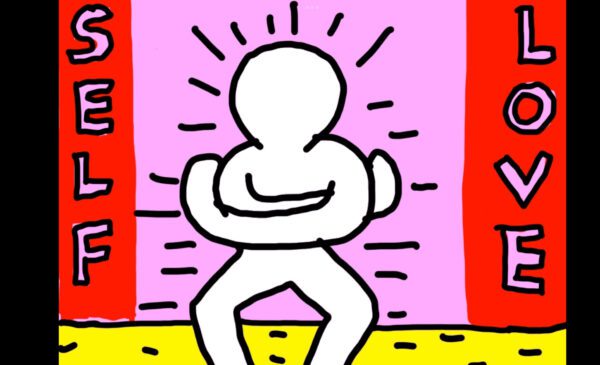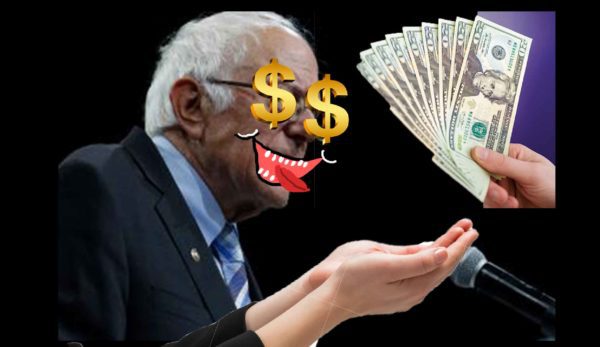In an age when capitalists roam the earth, it bares us a great self-service to ask ourselves is greed good? Capitalism is based entirely around this one somewhat nefarious concept? Serving rational self-interest.
Yes, greed is good. Greed as we all know it is the moral core of our civilization. Everything that has built humans from the ground up has been based on greed. There are many reasons as to why greed is good.
When we think of Greed in our society we often think of Michael Douglas’ portrayal of the infamous Gordon Gekko. In that final speech in the movie, he says “Greed, for lack of a better word, is good.” He of course went on to say that it “captures the essence of the evolutionary spirit. Greed, in all of its form: greed for life, for money, for love, knowledge has marked the upward surge of mankind.” Apparently greed is the fuel for the American business model.
Greed is all-natural
Humans as a species are insatiable. When we come together to formulate society, we can’t quite strain too far from our given nature. In this way, Philosophers like Aristotle proposed a social system that attempted to align with nature. In his discourses in Nicomachean Ethics, he talked about the happy life intended for man by nature. Yet man could only accomplish this happy life by living in accordance with natural laws. In a sense, politics and the political community must direct its energy towards bringing about this sort of life for its citizenry.
For the political philosopher, Thomas Hobbes, man’s core virtue was a state of war. Being that nature is more hostile than we tend to romanticize about it. In this essence, Hobbes saw that greed was something that couldn’t be avoided. In fact, greed was downright as close to the natural state of man as one could possibly get.
“man, in essence, is defined by his greed and that that human being is naturally greedy.”
-Thomas Hobbes
Some Political Philosophers Love it
According to Thomas Hobbes, there are two reasons why humans are Greedy:
The first reason is that our standards of what it means to be “successful” are impossible to satisfy. Look at multi-millionaires and billionaires. They are elevated to Godlike status. You can’t turn on the television without outright celebrity/entrepreneur worship. Wealthy people are the ideal person in modern society. Everything is excessive. Inherently this makes it all a standard by which prior pinnacles are set forth to being “successful.”
It’s different for the actual people living at the zenith of the social ladder. When millionaires reach this high platform of excellence, they are more often than not, looking to climb the next wrung and get the next paycheck. Naturally, in this way life becomes a perpetual cycle of accumulating more and more and more.
The second reason why people become greedy is that the failure to achieve these high levels of success affects people’s self-esteem. Here begins an onset of a potential existential crisis. We are always comparing ourselves to what others have. Inevitably it drives a perpetual cycle of greed.
As for Hobbesian and political philosophers asking the question “Is greed good” relays sort of a moot point. It’s not that it is either good or bad, rather that it relates to the natural inclination of humans themselves.
Greed as an ethical problem
Greed is a Virtue
For Ayn Rand “Selfishness” was a virtue. By her standards, there were the predators and the prey. The only rational option for a person to choose was to be a predator. In this sense, all of the institutions of “servitude” and “public good” are merely masochistic ideals. Sadism was Rands primary aversion.
Greed and self-service are two and the same things essentially. Rand wanted nothing to do with a worldview that taught self-sacrifice. To her it was disgusting. Technically we equate “greed” with this self-serving epicureanism. Her defense of greed comes at defending this ideal of “self-interest.” In this sense, a person was an end in himself and not the means to the ends of others. People should ultimately live for their own rational self-interest. Ayn Rand’s perspective was that greed is a sort of ennobling virtue.
How Greed brought about the 2008 Economic Collapse
Zizek wrote an article called “To Each According to His Greed.” This is a parody of the Marxist/Communist Maxim: From each according to his ability, to each according to his need. It exemplified the ideal of a community that built itself up. Whereas on the other hand, Zizek is parodying this very concept in order to create a point about how this concept has become perverted.
“Capitalist consumption is not really hysterical. Hysterical consumption means that you are always disappointed. It’s a promise that it will be the thing you want. You buy it and you’re disappointed. Consumption is a perversion. A pervert knows that when he/she buys a new computer that you will have to buy another one. There are no more illusions. We know that we will have to buy another one. People are more shocked if you buy something and it lasts you your lifetime.”
-Zizek
Take a look at the 2008 financial meltdown. Banks created the illusion of growth by playing with fictional money. Junk bonds were tranched and then called “diversified” and then sold off as AAA rated. It was the most sleazy banking fraud that has ever occurred. What spurred it on was the promise of continuous growth. Big banks were so blinded by this rampant greed that they couldn’t conceive of how it would all come down in a crash. Ultimately it resulted in one of the greatest market recessions in History.
Other articles you might like
Marketing Dark Arts Propaganda Techniques
The Jogging Meditation Technique
9 Annoying Cult Recruitment Techniques for Marketers
Is Greed Good for Spiritual Development?
There is a torturous dimension to being greedy as well. It turns into a sort of suffering and misery. Suffering that Buddha laid out for us.
So greed is a perpetual need-based struggle. Where your rapacious appetite can never be satiated, right? I don’t know about you but to want more and more of something without ever being satisfied seems tortuous. Yet greed underlies the framework of our society. Why? If we give up on greed will the scruples of our society fall apart? It is never being satisfied with what one has. To want more and more and more. Is this good or is this bad?
Epicureanism on overindulgence
We’d think that Epicurean hedonism would be the determining factor of greed. After all, the modern concept of hedonism paints this image of the ultra-successful as the highest form of being. That helps to drive progress in society but creates suffering. Ultimately greed is this sort of imbalance of virtue and vice. Look at celebrities who have become the sages of the modern ideal of greed. They are excessive, glamorous, luxurious, and ultimately just all-around more highly valued than the commoner. Yet their lavish hedonism is constantly getting them into trouble.
Their excessive lifestyles believe it or not actually flies in the face of Epicureus’ actual philosophy. This is because he practiced a sort of Negative hedonism whereby you identify your desires and try to live on the bare minimum. Quite the opposite of greed. Ultimately the more you have the harder it is to keep. Those who obtain all this luxurious excess inevitably come to identify themselves in it. Not only that they’ll never be happy about it, but they’ll also always want more and more.
Protestant Christian: Capitalism made right
According to the political philosopher Max Weber, our common notions of market forces come from protestant Christianity. Particularly, Calvinism & puritanical ethics. Christianity had a particularly profound ethical influence over the premodern market economy. People were called to work. Yey at the same time they are called to reject worldly affairs. That included the pursuit of wealth and possessions. This is because the accumulation of wealth and possessions was seen as greed. Greed is a sin.
Instead of accumulating wealth ad-nauseum. People were called to labor and to re-invest their wealth back into the community. Society was seen as a growing cooperative to grow in the divine presence of God. Yet as modernism progressed those ideas began to change. Instead of constructing a society based around God on earth, the idea became only about the accumulation of wealth.
With the emergence of modern capitalism, those fundamental tenants of Christian thought have all been erased. The wholeness of the enterprise was left by the wayside. Instead of a market economy where the highest earners invested heavily back into the communities, we had a profoundly more greedy alternative emerge. This new capitalism was all about creating wealth for wealth’s sake and was no longer about raising up the community at large.
“Greed is a sin against God, just as all mortal sins, in as much as man condemns things eternal for the sake of temporal things.”
-Thomas Aquinas
Buddha & the Suffering through perpetual desire
The question of greed and our immortal soul often dually arises hand in hand. Buddhist concepts of greed coincided with his notions about suffering. This is because Buddha would say greed is a Desire…plain and simply put. Even in Eastern mythology, Buddha equates greed to a sort of suffering beyond limitation. The Buddha adamantly offered people a way out of their suffering. These teachings can be summarized by the primary concepts of The Four Noble truths that layout the groundwork for Buddhism. Yet they are hard to understand s0 I’ll make it simple.
Suffering is the Truth of reality
To make this a little bit easier to understand. Suffering exists, it has a cause, it has an end and it also has a cause fo bring about its end. Greed inherently has no end. There is no satisfying the greedy. Only by adopting the Four Noble Truths. Buddhism, however, doesn’t try to abstain from pleasure. It just recognizes that pleasure is supremely fleeing. Like smoke that slips through your hands. It’s vaporous. Like the concept of Hebel from the book of Ecclesiastes. To the buddha, the pursuit of greedy endeavors can only continue what is ultimately an unquenchable thirst. However, it is treated no differently than any of the other dukkha or delusional suffering.
Greed Leads to the Worship of Money
There is a whole other level of greed and it’s not just about having money in your pockets but the worship of money itself.
The vast majority of people in the world are born into the economic system of capitalism. Inevitably it is leading people down the path of a sort of cult-of-greed. People worship money and what it can do for them. Advertisement after advertisement consistently emblazoned the idea of an unhealthy amount of consumerism. Propaganda by companies is a call to “go buy stuff.” Buying stuff is not evil. In fact under the tenants of the market economy, its the only way to acquire the necessities of life.
Greed is the surplus dimension that goes beyond mere necessity, however. Excess is the rule here. I feel like it all comes down to that very American aphorism of “keeping up with the Joneses.” Essentially I do agree somewhat with Gordon Gecko, in other ways I can see the negativity that greed brings into people’s lives.





